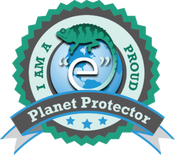|
Kenya’s Ministry of Environment and Natural resources has launched a Waste Management Program whose strategy is to have Zero Waste in the future. This will be done by promoting resource recovery to ensure a clean environment. A National Steering Committee with representation from key sectors from the national and county governments is in place to spearhead the program and promote sound management of waste using various structures. The Committee will look at all existing legislation and regulations, review them to determine if any changes are required, indicate time frames, and make recommendations.
The Social Security and Family Commission of Brazil has approved a bill to establish rules for the disposal of food waste. The bill was introduced by Congressman Givaldo Vieira (PT-ES) and has the goal of combating the problem of food waste in the country. Mr. Chico D’Angelo (PT-RJ) supported the proposed law and said that dealing with food waste properly can improve access to food for the poor and reduce the volume of waste.
The approved draft law would establish the National Solid Waste Policy (PNRS), which would be guided by principles of eradicating food waste. The PNRS would focus on the responsible generation of waste and the adoption of management and conservation practices that reduce waste and reuse surplus food. In addition, the PNRS establishes duties and obligations to redistribute food fit for human consumption, discloses food donation procedures, and encourages the use of technology to minimize the generation of recyclable waste. The proposed law must be analyzed by the Commission on Constitution and Justice and Citizenship before being voted upon in the Plenary of the Chamber of Deputies The Ministry of Environment and Urbanisation of Turkey opened a new consultation on the
Registration, Evaluation, Authorisation and Restriction of Chemicals law (KKDIK). The Ministry has requested comments from industry stakeholders. The consultation period closed on January 31, 2017. The consultation period is the last step in finalizing the KKDIK Regulation by the end of the first quarter of 2017. The most recent version of the new law sets a provisional registration deadline of December 31, 2022 and pre-registration deadline by the end of 2019. In addition, the KKDIK has incorporated European Union REACH standards into its framework, but has tightened requirements to ensure safety. Industry feedback is expected to focus on compliance costs and burdens of the KKDIK. Effective May 1, 2017, the new Shandong Work Safety Regulations will replace the 2006 version. In addition to basic work safety regulations on material storage, transportation, and forbidden activities, the new version focuses on the management and responsible personnel and the entities’ ability to strictly monitor work safety. The Regulations call for a comprehensive work safety prevention system with better communication with work safety officials.
Chief Justice, Tun Arifin Zakaria, has requested that the Federal Constitution be amended to expressly include the right to a clean and healthy environment. He stated that the Federal Constitution already implicitly provides for such a right under Article 5, which guarantees the right to life.
Other implicit rights have been derived from the Constitutional right to life, including the right to seek and be engaged in lawful and gainful employment and receive benefits that society has to offer its members. Thus, it should also include the right to live in a reasonably healthy and pollutant-free environment. Chief Justice Arifin also requested that Justice Tan Sri Richard Malanjum spearhead the drafting and introduction of a set of Environmental Rules of Court to encourage and support the practice of environmental law in courts. The environment and its preservation are integral to sustaining a diverse and successful culture and society. Other countries, including India and the Philippines, have made strides in environmental law and enforcement, and Justice Arifin urges Malaysia to do the same. Starting in 2017, the Ministry of Environment and Natural Resources of Vietnam plans to inspect projects that have a high potential for causing severe environmental pollution. The purpose of the inspections is to ensure that projects are adhering to the law. The Ministry will inspect to see if projects and business entities are complying with administrative and operating procedures and land use restrictions.
The Minister of Environment and Natural Resources, Trần Hồng Hà, issued Document No. 60, which orders local government leaders to collaborate in order to conduct these inspections. Specifically, the government will inspect industrial units that discharge 200cu.m or more of wastewater, with the exception of those units that were inspected in 2016. Some of the sectors that have been highlighted for inspection include: textile dyeing, metallurgy, production of chemicals, pulp paper, cassava, rubber, sugarcane, leather, and thermal power. The EU’s enforcement authorities plan to inspect how safety information regarding hazardous chemicals is collected, compiled, and communicated in the supply chain and then how the information is followed at workplaces. The reason for these inspections is to increase safety measures and awareness for workers who come into contact with hazardous chemicals, especially workers who deal with substances of very high concern (SVHCs).
Throughout 2017 inspectors will check to see if extended safety data sheets are in line with chemical safety reports that substance manufacturers prepare. Inspectors will also check to see if workers comply with safety information provided at their workplaces. The inspectors will then generate a report on the results, which will be available in the fourth quarter of 2018. The Department of Communications, Climate Action and Environment of Ireland adopted the European Union (Fluorinated Greenhouse Gas) Regulations 2016. These amendments establish provisions for the full and effective implementation of Regulation (EU) No. 517/2014 on fluorinated greenhouse gases and repeals Ireland’s Regulation No. 842/2006. The new regulation will build upon existing law to gradually phase down high global warming potential (GWP) fluorinated greenhouse gases and replace them with more environmentally friendly alternatives. Some of the most important provisions include:
The Regulation entered into force on January 1, 2017. |
Search Regulatory Compliance BlogBrowse by Topic
All
Browse Archives
January 2020
|

 RSS Feed
RSS Feed
